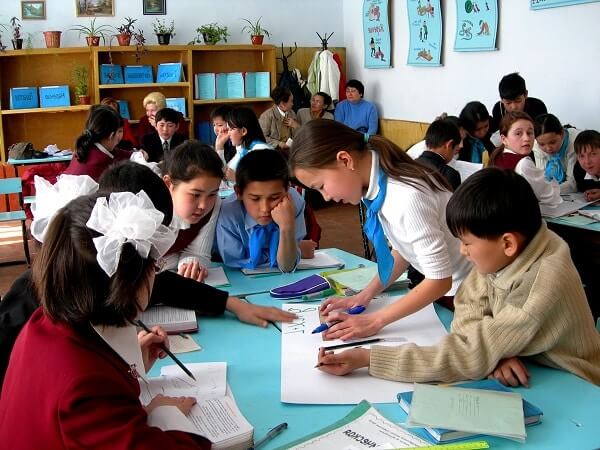The school year has just begun and a question on social media about combined or composite classes got me thinking. When my children were in primary school, and often in a composite class, many parents (especially migrants) thought gifted children were put in a composite class and were thus able to be ‘extended’. When the same child was put in a composite class with lower class students, for example in a 3-4 class with his year level being 4, then the parents’ angst and anguish were palpable.

No amount of the teacher or principal explaining that composite classes were based on student numbers and not on intellectual ability of the student satisfied the parents. They felt that their child would not progress academically.
In contrast, I found that my son became better when in a composite class with younger children. He helped the younger kids when he had completed his own work. So much so that shy kids who did not like to put up their hand and ask the teacher for help, often asked him.
So if you have a shy child, they will have more people to ask for help and the comfort and ease of having a peer to turn to. This may then translate to being able to relate to peers better in the playground, which will help in their social development.
When my children were in composite classes with older kids, I found that they did better probably due to a perceived higher level of competition, and also that they had greater confidence. They learnt better study habits by observing the older kids and had more social interactions, not just with their classmates but with children in other classes as well.
Children also learn cooperation, responsibility and appreciation of individual differences. I rarely heard any child being mocked as being dumb or slow, or given more importance for a talent. They saw that if a classmate helped them with computing, then the same classmate might be helped by someone else in English or another subject.
In fact, younger children find more role models in the older students and are able to integrate better into the class. They also learn the class routines quickly as they imitate the older kids.
When older children help the younger ones, they are reinforcing their own skills and get more practice at what they have learnt. So this not only makes them more confident but eager to learn more. I remember my son was good at computing and by Year 7 was reading magazines like Computers Today only because he wanted to know more. In fact, I think he thought he knew more than the teacher!
Being in a class with older kids helps children socially too. Kids from our community are often smaller physically than most others in the class. But being in the same class as older kids, they develop ways to communicate better and interact assertively with a wider variety of children in the classroom. They are then more confident and assertive outside of the classroom, in the playground as well as in other places.
Parents’ concerns about composite classes centre around bullying, children not being challenged enough, the curriculum not being covered adequately for both year levels etc. If any such concerns crop up, the best way is to approach the teacher or principal and discuss these issues openly.
Whether your child is in single-grade class or in a composite class, it is important to keep open communication with the teacher. Don’t be shy to take your concerns to the principal or higher, if nothing is done. Issues can arise in straight-grade classrooms as well.
So if your child who was happy to go to school last year suddenly does not want to go to school any more, or struggles with his or her homework, then speak to the school. The fault may not be with the composition of the class but there may be other dynamics at play.
It is important to have good communication with your school, and with the child’s teacher first and foremost, but also with other staff and parents too. Make sure you get involved with your child’s school. This makes it easier to ensure your child has good experiences at school and also you get to know more about the school and its workings.
As you can see, I think composite classes are quite good. Research mostly indicates the same. Academically, composite classes don’t seem to make much of a difference to most kids. However, some of the research indicates that socially and emotionally there is a greater advantage.
But we have to remember that it is not so much class structure that influences learning, but the quality of teaching. And the child’s involvement in the learning.
So is your child involved and engaged, not only academically but in other activities as well?
And are you? Are you involved in your child’s education?
My child is in a combined class
There are several positives for learning in multi-age classrooms

Reading Time: 3 minutes



